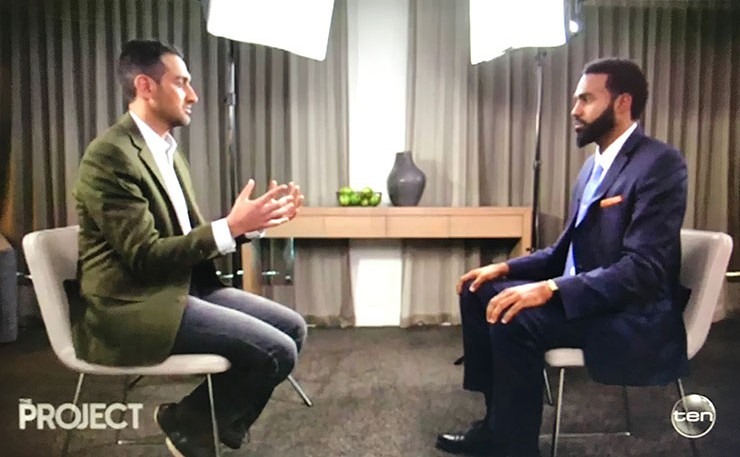Hèritier Lumumba – the man at the centre of the AFL’s never-ending racism scandal – speaks out about his fight for compassion and equality, and the silence and complicity of the people who turn away. This story can also be read on Lumumba’s personal website.
It has been one week since I left Australia, and just over a week has passed since an interview I did with The Project was aired on TV. The interview was conducted by the host of the program, Waleed Aly.
During the interview, Aly quoted the 19th-century Danish philosopher, Soren Kierkegaard, and I took note of it. He said, “Life can only be understood backwards, but it must be lived forwards”. And it is in the spirit of a new level of understanding, that I feel compelled to write about my experiences.
Firstly, I would like to let it be known that I appreciate the profound impact that Aly’s presence, in Australian media, has on society. His brilliance is evident and I am grateful that our paths crossed, for iron sharpens iron. I value his humanity, I wish that peace be unto him, and I see him as my brother who shares a divine connection to the same source of creation.
Regrettably, I made the error of going into the interview with the preconceived idea that we would both see eye to eye on the basic truths of racism/white supremacy. It pains me to admit, that my expectations of him were derived by his highly acclaimed career as an academic and journalist, his ethnicity, and his faith in Islam.
I made the assumption that he would skillfully deliver an objective, unapologetic stance in the face of racism. However, it is now very clear to me, that he and I have fundamental differences in our understanding of what racism/white supremacy is, and how it should be effectively dealt with.
Upon reflection, I should have been far more aware of our fundamental differences going into the interview.
After the death of Muhammad Ali, his portrayal of Ali as a ‘black supremacist’ highlights the enormous discrepancy we have in our understanding. Waleed Aly’s non contextualized perspective of the separatist movement in the USA, of which Muhammad Ali was a part of, is void of highlighting the socio-political backdrop of ‘white supremacy’ that pervaded Muhammad Ali’s life. By failing to point out that Muhammad Ali was socialized in a white supremacist society and world, responsible for a genocide that has spanned over 500+ years, his humanity is undermined, so too is the significantly miraculous influence that Ali had on the ‘black’ world during his days in the Nation of Islam.
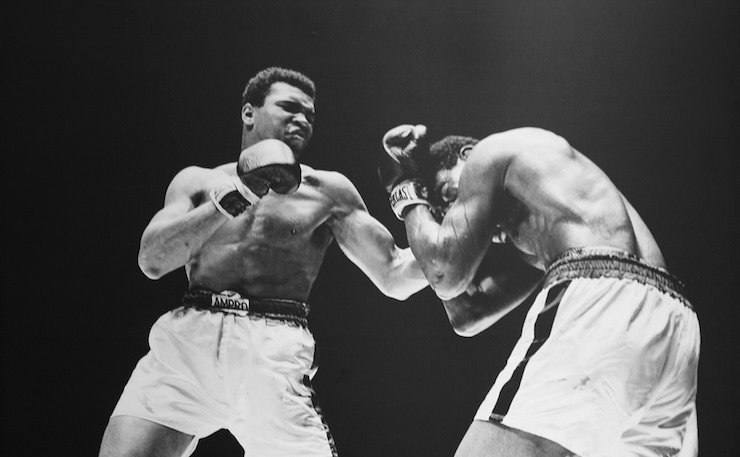
This is how Muhammad Ali responded to attitudes about the Nation of Islam, that are similar to Waleed Aly’s.
Then there was Aly’s attempt to neutralize the backlash that his fellow TV presenter, Sonia Kruger received after she suggested that Australia should place a ban on all Muslim immigration into the country. He responded by pleading for the outrage towards her comments to stop, saying that she was suffering from what he described as “horrendous personal attacks”. Aly also mentioned that when confronted with bigotry, we need to “consider” what “motivates” the people who are bigoted and “make love go viral”.
I have thought about the many missed opportunities that Aly has had, in his recent career, to publicly emphasize the need for the receivers of racist/white supremacist attacks, to be treated with an equitable amount of love, care, and understanding that he urges the public to have of people who perpetuate ‘white supremacist’ thought, like Sonia Kruger.
I winced at Aly’s silence when watching his co-host on The Project, Peter Helliar, disingenuously attempt to discredit my account of experiencing direct racism throughout my 12-year career as a professional footballer. Despite having dedicated six years to making a documentary about the direct racism that I faced during my football career, Helliar, a 42-year-old ‘white’ man, said that I needed to provide more details of my experience in order for him to believe that it happened.
Helliar’s response chose to ignore the known fact that he is in a culture that was built on a foundation of ‘white supremacy’ and genocide. I am grateful that Helliar expressed what was on his mind because it brought to the surface a perfect example of how ‘white supremacy’ functions.
I was also horrified by Aly’s inability to assert the facts when necessary. Aly was well aware that there were five players (including myself), who had simultaneously gone on record to highlight the same culture, within the Australian Football League (AFL), that is indifferent to various manifestations of racism.
I am mortified by Aly’s preference to prioritize the pain caused by the “horrendous personal attacks” directed at Sonia Kruger – as a result of her “outrageous” opinion – to the “horrendous personal attacks” that I have been subjected to from within the institution that I call into question.
I have also been the target of “horrendous personal attacks” from members of Australian society – some even calling for me to be lynched – simply for sharing my experiences.
Aly’s silence and indifference to ‘black’ pain, speaks volumes when juxtaposed with his preparedness to validate and express support for Sonia Kruger’s ‘white’ pain. Aly’s indifference to ‘black’ pain perpetuates the dehumanization of ‘black’ bodies that is evident in the legacy of white supremacy in the colonization and enslavement throughout the world, and the legacy of oppression from the Trans-Arabic slave trade.
Having spent two hours engaged in an intensely, in-depth conversation with Aly, I couldn’t help but notice his lacking ability to dignify the pain that I experienced. However, Aly was prepared to exclaim that, “Sonia Kruger is not evil, she’s scared,” validating her pain of being in fear.
Aly could have treated me with the “radical generosity” that he afforded Kruger, by simply acknowledging that my name had been publicly smeared through false aspersions on my mental health. Obviously, if there were any doubts about my mental health by Aly and his team at The Project, surely they would not have subjected me to the persistent victim blaming throughout the 1.5 hour interview that was conducted in a completely dark hotel room, illuminated only by several cameras and lighting for, ‘dramatic effect’?
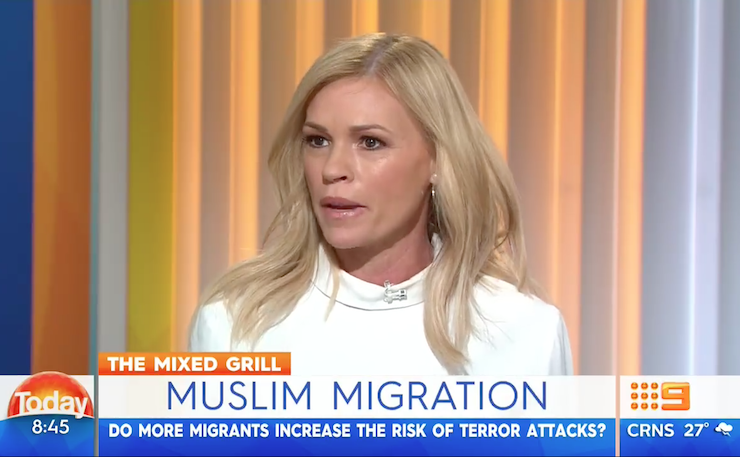
Aly could have quite easily said something along the lines of, “If Lumumba’s allegations are indeed true, as confirmed by several former teammates, he has been treated poorly on many levels and deserves to be treated generously.”
I argue that Aly’s statement, “Sonia Kruger is not evil, she is scared,” once again, is derived from a lack of a substantial contextualization.
I say, “Sonia Kruger is not evil, she is scared and has been conditioned by an evil system. The name of that evil system is called racism/white supremacy and was designed to ensure the ‘white’ domination of the Australian resources, institutions, and economy. The conditioning of her mind has direct links to a history of white supremacist socio-political engineering that effectively constructed an illusory threat, as well as an instilled fear of ‘non-white’ people/culture in the hearts and minds of ‘white’ Australians. The fear that was successfully generated was subsequently ‘remedied’ by federal legislation such as the ‘Immigration restriction act’, commonly known as ‘The White Australia policy’. Kruger’s logic and reasoning in response to the phenomenon of terrorism are intertwined with ‘white’ Australia’s xenophobic history.”
By placing an emphasis on understanding the psychological aspects of Kruger’s perspectives, Aly failed to adequately examine the historical and contemporary socio-political forces at play, rendering his response in the face of white supremacy as simply, apologetic.
But I get it, for I was once coerced and conditioned to be apologetic about my reaction to ‘whiteness’. Something as simple as speaking up – when confronted by racist remarks – was a painful and difficult task because of the ingrained fear of stepping on ‘white’ toes.
I was prepared to compromise my humanity and the humanity of others, just to protect the feelings of the people who perpetuated the cycle. I didn’t want to be labeled ‘crazy’ or the ‘angry Black man’. Who the hell does?
But that is the consequence that you face for speaking the truth. I already felt like an outcast, and it was inherently counterintuitive to do anything that would further highlight my ‘differences’ through the white gaze.
Aly said that showing “radical generosity”, in the face of hostility, is a much harder choice because it demands much more restraint, patience, and strength. I have found that the hardest choice of all is also the most courageous and necessary choice for sustainable change, the choice to make an unapologetic stance in the face of hostility.
The degree of difficulty of this option is increased if you are cognizant of the inevitable ramifications of doing so. Silence and silencing, dismissal, denial, and attacks on one’s character or, in extreme cases, one’s body, are the hallmarks of cognitive dissonance.
This is the harsh reality of the consequences people face when speaking about ‘white supremacy’. With that in mind, I can totally understand why a person in Aly’s position would be more inclined to call out so-called “black supremacy”, but avoid, at all costs, uttering the words ‘white supremacy’ when dealing with racism.
Like the majority of people in Australian society, Aly’s livelihood is determined by a ‘white’ power structure, so I understand his propensity to default to an apologetic disposition and remain silent about the realities of ‘white supremacy’.
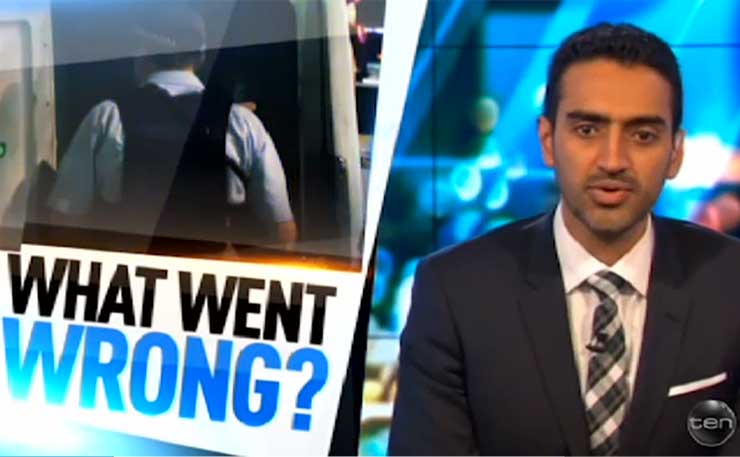
In light of Kruger’s comments, Aly suggested that we must stop the “inertia of outrage” by treating Kruger with a “radical generosity”. This was the exact same attitude and expectation that was expected of me, by officials of the Collingwood football club, when I publically spoke out against Eddie Mcguire’s racist comments on Adam Goodes.
My response is, that I refuse to compromise my humanity, and the humanity of others, for the comfort and convenience of the privileged.
In order to achieve more justice, peace, and equality in our society, we must harness the limited time and energy that we possess as human beings and direct that time and energy into showing more “radical generosity” towards victims, so that the humble, healing of humanity can be maximized.
Personally, I am committed to prioritising my radical generosity to members of our society that are being oppressed, which includes, but is not limited to victims of the system of patriarchy and its manifestations – sexism, misogyny, violence against women; victims of homophobia; victims of disability discrimination; victims of religious discrimination; and victims of child abuse.
It is far more necessary to focus our attention towards acknowledging and understanding how oppressive systems affect members of our society, as opposed to combining a focus on “radical generosity” with an attempt to analyze the psychology of individuals who maintain oppressive systems.
Australia needs to show more “radical generosity” to First Nations people of the continent, who are yet to have their sovereign status recognised through the signing of a treaty (the only colonised land in the world yet to do so). The true ‘owners’ of the continent of Australia, are doing their best to survive a genocide that is led by a Government that has absolutely no jurisdiction to permeate laws on behalf of the sovereign people.
Australian society needs to be radically generous to the African youth, who are under unrelenting attacks by the system of white supremacy in Australian society. The Australian media is complicit in fuelling the police’s unjust racial profiling of African youth.
Aly’s team at The Project is complicit in contributing to the growing “inertia” of racist vitriol that “spins like the Gravitron” that pervades Australian society. I will never forget what happened last year, when The Project targeted my young and talented brother, Ror Akot, by subjecting him to a vicious, disgusting and downright degrading use of his image, to portray the so-called ‘Apex Gang’.
The fact is, that Aly’s team at The Project were prepared to prioritize their agenda to sensationalize ‘African Australian’ youth delinquency, while simultaneously inflicting pain – that Waleed and his team are clearly indifferent to – by destroying an innocent (‘black’) person’s image. That is a perfect example of ‘White supremacy’.
When confronted by outrageous opinions Aly says, “We’re actually presented with two options, destruction or construction.”
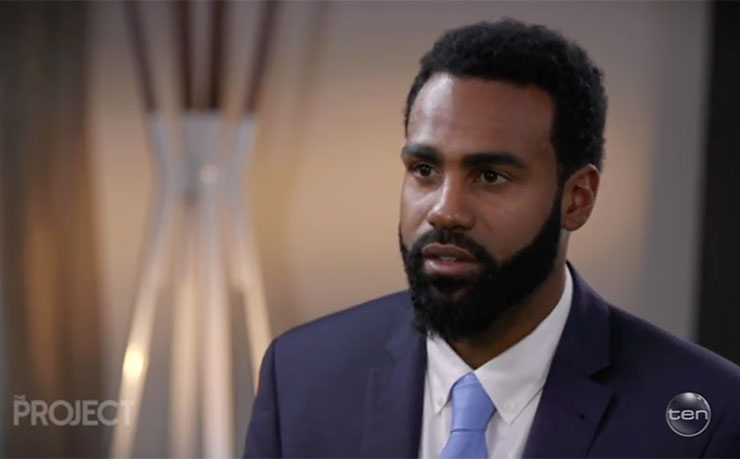
Members of our society are NOT limited to choosing between the two options that he suggests. This logic is a problematic approach to dealing with ANY manifestation of tyranny. He failed to explore deconstruction as a suitable option when dealing with outrageous opinions i.e, as the Merriam Webster dictionary defines as the; “Analytic examination of something (such as a theory) often in order to reveal its inadequacy.”
So here is one methodology of deconstructing and dismantling the system of racism/white supremacy:
Start with a socio-political examination of historical and contemporary forces that shape the individual and collective psyche; once an individual can identify how the mind is conditioned to maintain the system, it can be actively engaged to deprogram the conditioning.
Once people are able to deprogram to a point where they reach a basic, individualized understanding of the functioning of the system, they can unite in solidarity with others to forge an alliance. The alliance can be comprised of people who have been oppressed, as well as people who share an understanding of how the system functions and is maintained.
The alliance will then be in a position to strategically and purposefully mobilise, to place the necessary pressure on leaders and their policies. If the pressure is consistently sustained, there will be concessions made that result in changes to policies that bring about a shift in the paradigm.
All members of society have been conditioned by the system of racism/white supremacy, the question is, what are you doing to deconstruct it inside of you?
In the spirit of a sincere pursuit of justice, peace, and equality, your brother, Lumumba.
Donate To New Matilda
New Matilda is a small, independent media outlet. We survive through reader contributions, and never losing a lawsuit. If you got something from this article, giving something back helps us to continue speaking truth to power. Every little bit counts.

